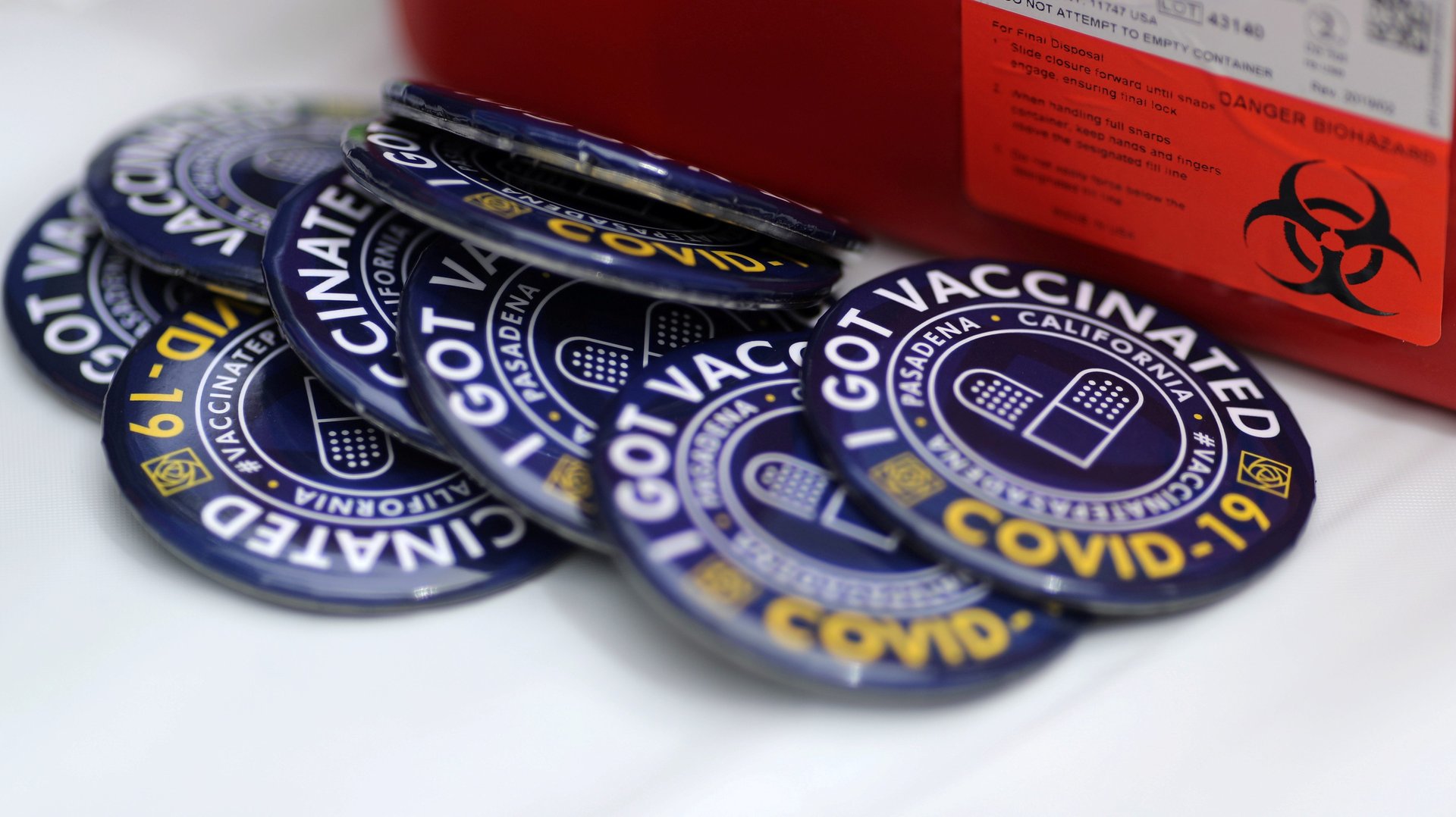The US is leading all major countries in Covid-19 vaccinations
Covid-19 vaccines have finally given the US an opportunity to claim a global healthcare success.


Covid-19 vaccines have finally given the US an opportunity to claim a global healthcare success.
Today, the country announced that it has fully vaccinated half its population, the first large country to do so. Only Israel, whose population is just over 9 million, Seychelles (population: 100,000), and San Marino (33,000) can boast a higher percentage.
The EU is far behind
When it comes to global health, it is rare for the US to be a leader. From life expectancy, to maternal mortality, to incidence of chronic disease, the US trails the rest of the rich world, but when it comes to the Covid-19 vaccine it is leading—and by a wide margin.
The US was able to achieve this through the significant investment its government made in 2020, both in vaccine development and by securing a large supply of doses even ahead of production.
Among the world’s largest economies the only country to have anywhere near the US’s success is the UK, which has vaccinated 34% of its population. Everyone else is far behind, including Germany, France, and Italy, none of which has reached 20%.
Overall, the EU has fully vaccinated just 5% of its population. It’s likely China has, too, though the country isn’t sharing details on the number of fully vaccinated people, so the estimate is made based on the number of vaccine doses administered.
Vaccine nationalism
Behind the US’s success, however, there are accusations of vaccine nationalism. Despite having a surplus of doses, the US was late in sharing excess vaccines, while other rich countries, including Europe, joined Covax, a World Health Organization (WHO)-backed agreement to provide Covid-19 vaccines to poor countries earlier on. They continue to contribute to the program despite their own shortages.
Overall, the global vaccine distribution has been very uneven, leaving poorer countries far behind. As the WHO noted, this could be dangerous not just for the countries struggling to get enough vaccine doses as they deal with new outbreaks, but also for those that have vaccinated a large percentage of their population. As it happened recently in India, new Covid-19 outbreaks increase the likelihood that new, vaccine-resistant variants might emerge, posing a threat even where the population is immunized against current variants.